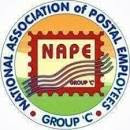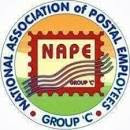All entries, “good” or “bad” made by a superior in the annual confidential report (ACR) of a government employee must be communicated to him or her, the Supreme Court held on Monday (12.5.08). The Bench, of Justice H.K.Sema and Justice Markandya Katju rejected the Center’s contention that only an adverse entry had to be made known.
Writing the judgment, Justice Katju said non-communication of an entry “is arbitrary’ because it deprived the employee of an opportunity of making a representation and praying for its upgrade. ‘Moreover, the object of writing the confidential report and making entries in them is to give an opportunity to a public servant to improve his performance.”
“Fairness and transparency in public administration require that all entries (whether poor, fair, average, good or very good) in the ACRof a public servant, whether in civil, judicial, police or other service (except the military) must be communicated to him (or her) within a reasonable period so that he (or she) can make a representation for its up gradation,” the Bench said.
This would apply to an employee under the State or its instrumentality.
“If we hold that only a ‘poor’ entry is to be communicated, the consequences may be that persons getting ‘fair’ ‘average’ or ‘good’ entries will not be able to make a representation for their upgrade and this subsequently adversely affect their chances or promotion (or get some other benefit),” the Bench said.
It held that if the September 10, 1987, Office Memorandum was interpreted to mean that only adverse entries (i.e., ‘poor’) needed to be communicated it would become arbitrary and illegal.
Writing the judgment, Justice Katju said non-communication of an entry “is arbitrary’ because it deprived the employee of an opportunity of making a representation and praying for its upgrade. ‘Moreover, the object of writing the confidential report and making entries in them is to give an opportunity to a public servant to improve his performance.”
“Fairness and transparency in public administration require that all entries (whether poor, fair, average, good or very good) in the ACRof a public servant, whether in civil, judicial, police or other service (except the military) must be communicated to him (or her) within a reasonable period so that he (or she) can make a representation for its up gradation,” the Bench said.
This would apply to an employee under the State or its instrumentality.
“If we hold that only a ‘poor’ entry is to be communicated, the consequences may be that persons getting ‘fair’ ‘average’ or ‘good’ entries will not be able to make a representation for their upgrade and this subsequently adversely affect their chances or promotion (or get some other benefit),” the Bench said.
It held that if the September 10, 1987, Office Memorandum was interpreted to mean that only adverse entries (i.e., ‘poor’) needed to be communicated it would become arbitrary and illegal.
Morale booster
The Court made it clear that even an ‘outstanding’ entry should be communicated since that would boost the morale of the employee and make him /her work harder.
Once a representation was made against an entry, the authority concerned must make a fair decision within a reasonable period. “We also hold that the representation must be decided by an authority higher than the one who gave the entry, otherwise the likelihood is that the representation will be summarily rejected without adequate consideration as it would be a n appeal from Caesar to Caesar,” the Bench said.
“All this would be conducive to fairness and transparency in public administration and would result in fairness to public servants. The state must be a model employer, and must act fairly towards its employees. Only then would good governance be possible.”
In the instant case, Dev Dutt, working in the Border Roads Engineering Service, was not considered for promotion as Superintending Engineer as he did not have the benchmark of “very good” entry; he got only a ‘good ‘entry for 1993-94. His petition before the Gauhati High Court that this was not communicated to him was dismissed.
Allowing his appeal against that judgment, the Bench said though he had retired, the ‘good’ entry must be communicated to Mr. Dutt and if an upgrade was allowed, he should be considered for promotion retrospectively. If promoted, he would be entitled to all consequential benefits with eight per cent interest a year.
The Court made it clear that even an ‘outstanding’ entry should be communicated since that would boost the morale of the employee and make him /her work harder.
Once a representation was made against an entry, the authority concerned must make a fair decision within a reasonable period. “We also hold that the representation must be decided by an authority higher than the one who gave the entry, otherwise the likelihood is that the representation will be summarily rejected without adequate consideration as it would be a n appeal from Caesar to Caesar,” the Bench said.
“All this would be conducive to fairness and transparency in public administration and would result in fairness to public servants. The state must be a model employer, and must act fairly towards its employees. Only then would good governance be possible.”
In the instant case, Dev Dutt, working in the Border Roads Engineering Service, was not considered for promotion as Superintending Engineer as he did not have the benchmark of “very good” entry; he got only a ‘good ‘entry for 1993-94. His petition before the Gauhati High Court that this was not communicated to him was dismissed.
Allowing his appeal against that judgment, the Bench said though he had retired, the ‘good’ entry must be communicated to Mr. Dutt and if an upgrade was allowed, he should be considered for promotion retrospectively. If promoted, he would be entitled to all consequential benefits with eight per cent interest a year.

.jpeg)
.jpeg)


.jpeg)

